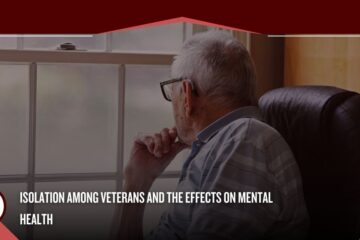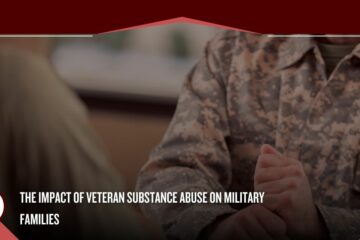 The United States owes our veterans gratitude for their service and dedication to protecting our freedoms. Military veterans have made significant sacrifices and risks to their safety to protect our country and have asked very little in return.
The United States owes our veterans gratitude for their service and dedication to protecting our freedoms. Military veterans have made significant sacrifices and risks to their safety to protect our country and have asked very little in return.
A veteran’s service is not over when they return home or come to the end of their military careers. Many veterans face insurmountable challenges when they return to civilian life. For many veterans, one of the most significant challenges they face is overcoming drug and alcohol addiction.
Mental health and addiction experts have studied the impact of addiction on the lives of our country’s service members and have begun to understand this complex connection. It is essential to understand why substance abuse and addiction are so common in our nation’s veterans so that we can provide more effective, compassionate treatment to these heroes.
This article will explore common mental health struggles among veterans and how they may lead to addiction. Reach out to the Alamo Behavioral Health Team now to explore our effective mental health and addiction treatment programs or to find support at any stage of addiction recovery.
The Link Between Veterans and Substance Abuse
Recent research suggests that veterans have a slightly elevated rate of substance abuse when compared to the general population. This is especially true for alcohol abuse, which is the most common form of substance abuse among veterans. While rates of substance abuse among veterans are falling in general, there have been drastic increases in some forms of substance abuse among veterans over the last two decades.
Veterans’ substance abuse is a complex issue. Researchers found that marijuana use among veterans rose by about 50% between 2002 and 2009. Some researchers believe that the popularity of marijuana has grown across all demographics as states have legalized or decriminalized it. Marijuana use is more common among large portions of the population, and more veterans may be turning to it to manage stress or cope with trauma.
Alcohol abuse is much more common among veterans, and most who struggle with alcohol abuse do not get the treatment they need. Research shows that more than four in five veterans who struggle with alcoholism do not receive treatments to overcome it.
Generally, about 11% of veterans are believed to meet the criteria for substance use disorder, which is slightly higher than the general population. It is essential to explore the reasons behind this higher-than-average rate of substance abuse and why veterans may not get the care they need to overcome it.
Common Mental Health Struggles Among Veterans
Veterans face unique challenges during their service and as they transition back into civilian life that could contribute to their higher-than-average rates of substance use disorders. Many veterans experience new or worsening mental health symptoms while in service and after returning home.
Here are some of the mental health challenges veterans face during their service and after they return home.
Depression
Some veterans struggle with depression that can overwhelm their ability to function. People may feel depression when they are actively serving in the military, or it may develop after they return home. It can be very challenging to find meaningful work, to renew old roles in the family or society, or to live with the everyday challenges of civilian life. People who struggle with depression may be more likely to turn to drugs and alcohol for relief if they do not receive adequate treatment.
Stress
It might go without saying, but military service can be very stressful. Veterans may live with stress while serving and when they return home. Stress can take a toll on your physical and mental health. It can also cause significant relationship strain and other social problems. Without developing strategies to manage stress effectively, some people may turn to drugs or alcohol to manage it.
Trauma and PTSD
Military service can be traumatic, whether people are engaged in combat or not. Long periods of isolation or separation from friends and family, uncertainty, and stress and strain can be traumatic. Veterans who have experienced combat or who have sustained injuries are more likely to live with trauma, and the effects can be profound.
Some of the symptoms of trauma and PTSD include:
- Stress and anxiety
- Depression
- Reliving the traumatic event–known as flashbacks
- Having nightmares about the traumatic event
- Avoiding anything related to the event
- Relationship difficulties
- Hypervigilance
- Insomnia and other sleep problems
When people are faced with stress or trauma that exceeds their ability to cope, they may be more likely to turn to drugs or alcohol. Using substances to dull or mask emotional pain is known as self-medication, and it is a primary factor in the development of addiction.
Veterans who struggle with mental health challenges and substance abuse require comprehensive, compassionate dual diagnosis treatment. It is crucial to treat both mental illness and substance abuse at the same time so that people can heal from both conditions.
Find Addiction and Mental Health Treatment for Veterans
If you or a veteran you love needs treatment for mental health and addiction, the compassionate care you need is just a phone call away. Our dual diagnosis treatment center in Texas provides some of the best, most up-to-date care for veterans who are struggling with addiction and mental health. Reach out to the specialists at Alamo Behavioral Health now to explore our holistic treatment programs or for support during any stage of your recovery.





